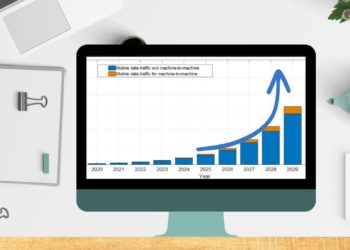Expanding a business globally is an exciting endeavor, but it comes with a range of challenges. One of the most complex hurdles is navigating the licensing requirements in different countries. Laws can vary significantly from one country to another, and businesses need to stay up-to-date with a variety of regulations and standards. To successfully scale a business across borders, companies must be aware of the licensing complexities that may arise and how to address them effectively.
Licensing Requirements in Different Markets
Federal vs State Licensing in the USA
The division into local and federal licenses can be especially complicated for companies that want to expand their operations across state lines. While federal laws govern some sectors, states have the authority to impose their own licensing rules.
For example, businesses in the healthcare industry need to adhere to federal regulations set by the Department of Health and Human Services (HHS). However, each state also has its own licensing board that oversees healthcare providers within its borders. Therefore, a business offering healthcare services may need to obtain multiple licenses, depending on where it operates.
Similarly, the alcohol industry is highly regulated in the USA. The federal government sets guidelines for the production and distribution of alcohol, but each state has its own liquor control board that enforces specific rules. Businesses that wish to operate in multiple states must navigate the complex web of federal and state regulations, which can be time-consuming and costly.
Licensing in the EU
In the European Union, businesses benefit from a more unified regulatory environment, especially in comparison to the USA. The EU has implemented several regulations that help standardize the licensing process across member states. For example, the EU’s Common Market ensures that businesses can operate freely within the internal market without facing excessive barriers to entry.
However, this harmonization does not mean that there are no licensing challenges. Each EU member state still has its own regulatory framework, and while there is significant cooperation among countries, there are still differences in local requirements. Companies operating in the Union must consider both EU-wide regulations and individual country-specific laws.
One example of an EU-wide regulation is the General Data Protection Regulation (GDPR), which governs data privacy and protection for all businesses operating within the EU. While the GDPR provides a unified approach to data privacy, businesses still need to comply with the national laws of the specific country in which they operate.
Key Steps to Navigate Licensing Complexities
Conduct Thorough Research
Companies should look at national and local regulations to ensure that they meet all requirements. Engaging with local experts or legal professionals can help businesses avoid costly mistakes.
Understand the Different Types of Licenses
Licensing laws vary depending on the industry, and businesses need to identify the specific types of licenses required for their sector. Some businesses may need a general business license, while others may require specialized permits related to their field. For example, a food and beverage business may need health and safety permits, environmental permits, or alcohol licenses, in addition to a general business license.
Evaluate the Cost and Time Involved
Obtaining licenses can be a time-consuming and expensive process. Companies should assess how much time and money they need to obtain the necessary licenses before expanding into a new market. While licensing fees are typically the most obvious cost, businesses should also factor in the time it will take to gather the necessary documentation, comply with inspections, and wait for approval from regulatory authorities.
Plan for Ongoing Compliance
Licensing requirements often change over time, so it is important for businesses to stay up-to-date with new regulations and ensure they remain in compliance. Regular audits, working with legal professionals, and monitoring changes in local laws can help businesses maintain their licenses and avoid costly fines.
Leverage Technology to Simplify the Process
Navigating licensing complexities can be a daunting task, but technology can help simplify the process. There are many tools and software available that can help businesses track licensing requirements, monitor compliance, and manage documentation. These can help businesses stay organized and avoid missing critical deadlines or failing to meet regulatory requirements.
Common Pitfalls to Avoid
- Not Paying Attention to Local Regulations
While businesses may be familiar with licensing in their home country, they often fail to recognize the complexity of regulations in foreign markets. To avoid this, businesses must be diligent in researching local licensing requirements and working with local experts.
- Not Renewing Licenses on Time
Licenses have expiration dates and must be renewed periodically. Failing to renew licenses on time can result in fines or even the loss of the ability to operate. Businesses must keep track of renewal dates and ensure that they submit renewal applications well in advance to avoid any disruptions in their operations.
- Not Adapting to Local Market Conditions
Even if a company is successful in obtaining licenses, it may still struggle if it fails to adapt to the local market. Local market conditions, customer preferences, and cultural differences can all impact the success of a business. Companies should take the time to understand these factors and adjust their products, services, and operations accordingly.
- Not Dealing with Environmental and Social Regulations
Many countries, especially in the EU, have strict environmental and social regulations that businesses must adhere to. Failing to comply with these regulations can result in significant penalties and damage to a company’s reputation. Businesses must ensure that they meet all local environmental standards and positively contribute to the local community.
To Wrap up
Businesses operating in the USA or the EU must understand the licensing requirements in each market and ensure compliance with local laws. Conducting thorough research, evaluating costs and timeframes, and leveraging technology allows international and local businesses to streamline the process and avoid common mistakes. Global expansion is a rewarding venture, but it requires careful planning and attention to detail. Resources like incluence.net can provide valuable insights and guidance on navigating licensing complexities to ensure smooth and successful international growth.
David Prior
David Prior is the editor of Today News, responsible for the overall editorial strategy. He is an NCTJ-qualified journalist with over 20 years’ experience, and is also editor of the award-winning hyperlocal news title Altrincham Today. His LinkedIn profile is here.











































































